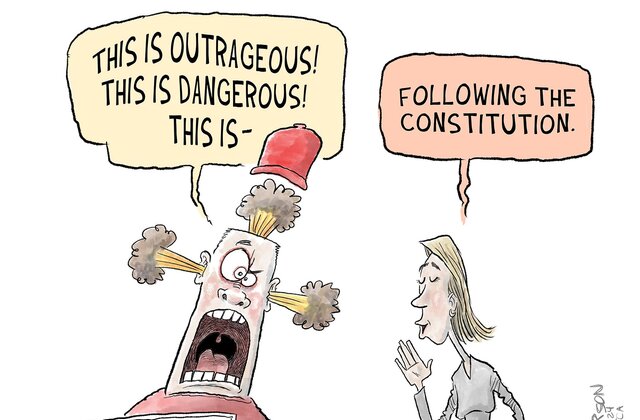[ad_1]
British lawmakers expressed disappointment on Wednesday that money from the sale of Chelsea Football Club has not yet gone to aid Ukrainian war victims, as former owner, Russian billionaire Roman Abramovich promised nearly two years ago.
Abramovich sold Chelsea in 2022 after being hit with sanctions by the British government for enabling Russia’s “brutal and barbaric invasion” of Ukraine.
He pledged to donate £2.5 billion ($3.2 billion) from sales to victims of the war. But almost 20 months later, the money is still sitting in the bank account due to an apparent disagreement with the British government over how it should be spent. The standoff highlights the difficulty for Western governments in getting access to Ukraine’s frozen assets – even those that are mortgaged by their owner.
Lord Peter Ricketts, chairman of the European Affairs Committee in the upper house of the UK Parliament, which prepared the report, said, “We are all absolutely astonished and disappointed that it has taken so long.”
Ricketts said, “We cannot understand why Abramovich or the British government did not ensure that there was more clarity in the original undertaking … that would have avoided the debate in Ukraine about who would get the money.”
political cartoon

The impasse “reflects poorly on both Mr Abramovich and the government,” the report said.
The frozen funds still belong to Abramovich, who sold Chelsea to a consortium of Los Angeles Dodgers part-owner Todd Boehly. To transfer the funds, Abramovich must apply for a license, which the British government has said is contingent on the funds being used “exclusively for humanitarian purposes in Ukraine.”
At the time of the sale, Abramovich said in a statement that the money would be transferred to a foundation – yet to be created – that would be “for the benefit of all victims of the war in Ukraine.”
This could also include Ukrainians outside Ukraine, Ricketts said, and lawmakers heard evidence that Abramovich “perhaps anticipated its use in Russian-controlled parts of Ukraine as well.” He said that the British government would veto any such step.
Mike Penrose, a former chief executive of UNICEF UK, who was appointed head of the foundation that will control the funds when it is agreed they cannot be stabilized, told The Associated Press that Russian-occupied areas of Ukraine The money will not be used. should be allowed as it would be a violation of existing restrictions.
The terms of the agreement between the British government and Abramovich are not public, Penrose said, but the agreement stipulated that the money would be used to help people suffering from “the consequences of the Ukraine war.” He said this could include refugees from Europe as well as people suffering from food shortages in Africa following disruptions to food supply routes.
In December, Abramovich lost a challenge Against the EU’s decision to issue a travel ban and freeze his assets in the bloc. When the EU imposed sanctions on Abramovich, it accused him of having “privileged access” to Russian President Vladimir Putin and “maintaining very good relations with him”.
Analysts say Abramovich has tried to strike a balance since the war began. He has established himself as a middleman between Russia and the West, facilitating prisoner exchanges and – Kremlin said in March 2022 – Acted as mediator approved by Russia and Ukraine in the talks.
Tom Keatinge, director of the Center for Financial Crime and Security Studies at the Royal United Kingdom, said, “Among the high-profile oligarchs, Abramovich is the one who has managed to successfully keep a foot in both camps over the past two years.” Service Institute in London.
Keating suggested that Abramovich might stay away from any arrangement in which all Chelsea funds are spent in territory controlled by the Ukrainian government – as opposed to humanitarian projects elsewhere – as this could put him in “conflict” with the Kremlin. .
Penrose disagreed, saying he saw no indication that Abramovich was trying to raise money in a way that “seeks to favor the Kremlin.”
Penrose said he hoped an agreement could be reached soon and suggested the money was now stuck in a “bureaucratic hole”, because Britain had agreed with the EU that the money could only be used for projects inside Ukraine. Can be done for.
Until now, Western countries have struggled to use it billions of dollars of Russian sovereign or private assets sanctioned for helping Ukraine.
The Chelsea Fund is an important “case study” of the challenge we face Trying to access frozen assets For the benefit of Ukraine,” Keating said.
An agreement between Abramovich and the British government could “set a precedent for others to be able to donate in a voluntary manner to humanitarian well-being in Ukraine,” Ricketts said.
In Wednesday’s report, UK MPs also recommended that the UK government consider launching a process for Reviewing sanctions on individuals If they meet certain conditions, such as providing assistance for the reconstruction of Ukraine.
Copyright 2024 The associated Press, All rights reserved. This material may not be published, broadcast, rewritten, or redistributed.
[ad_2]
Source link
